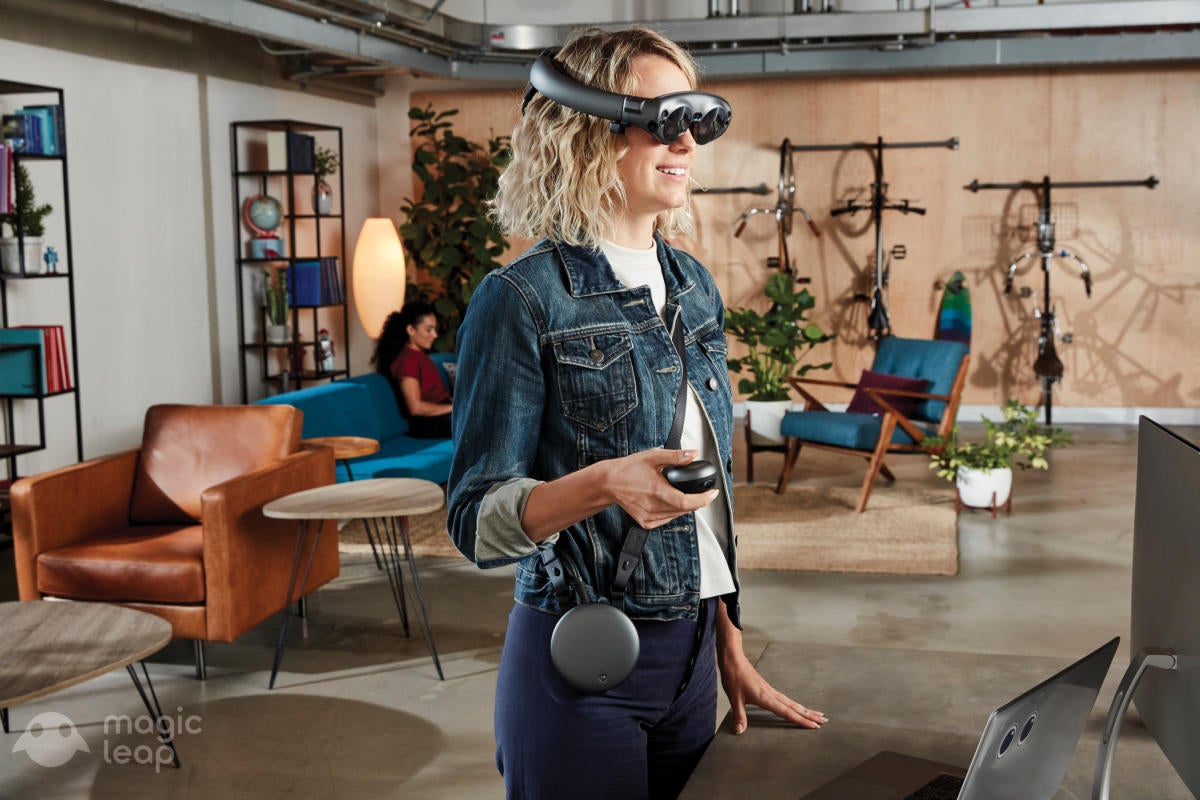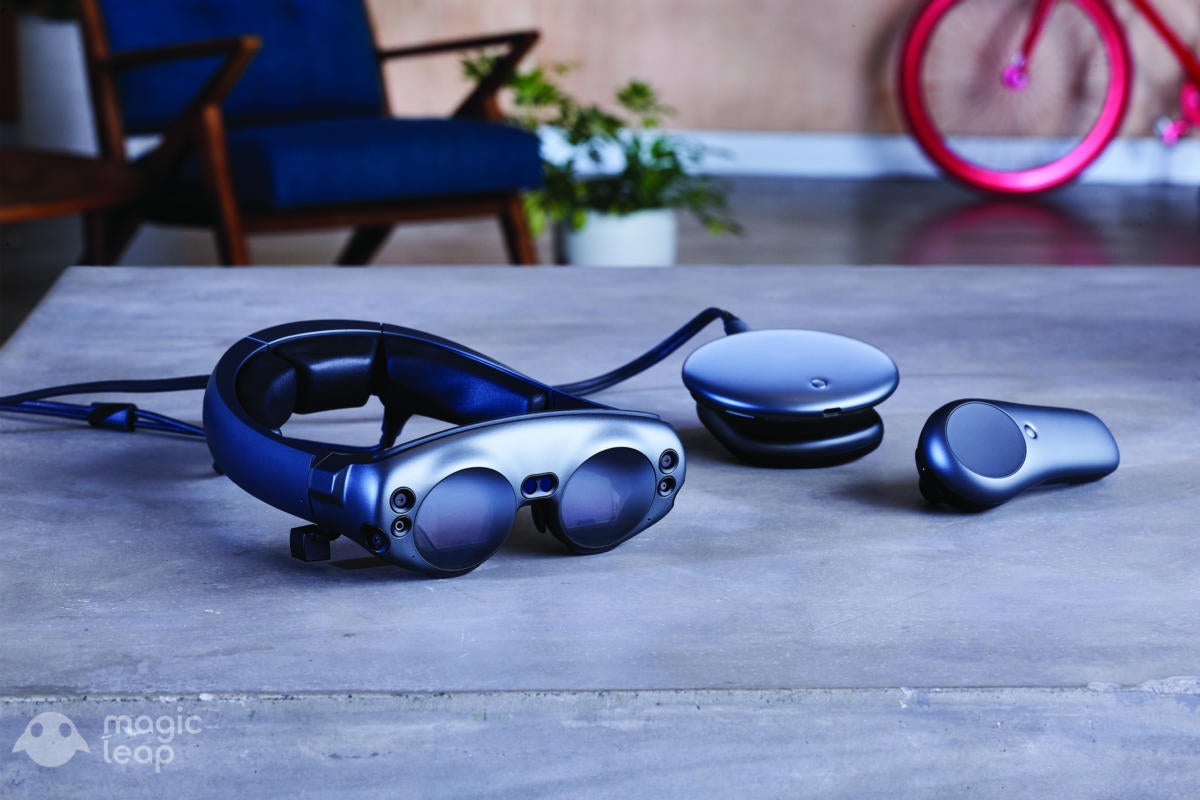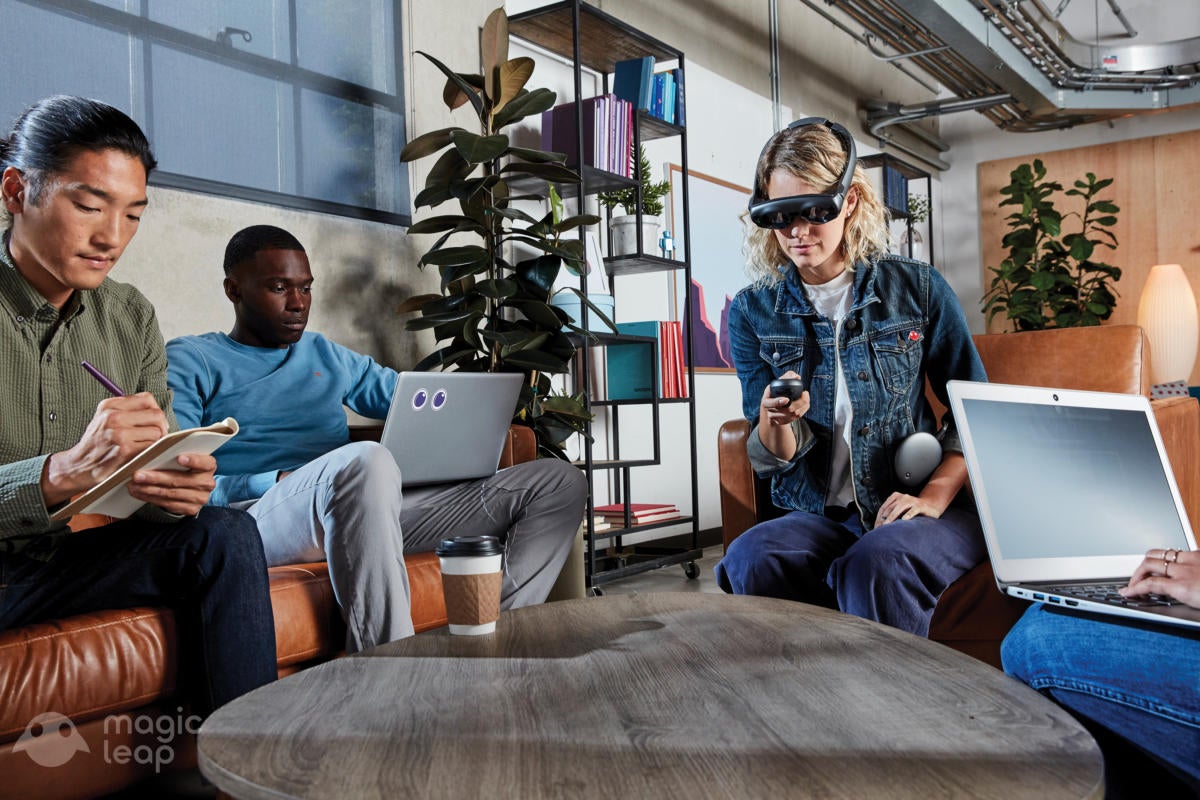Magic Leap hands-on: Magic, sure, but augmented reality is still a long way away from mass consumption - bouchardcumay1982
Here are two ostensibly contradictory statements: 1) Supernatural Leap is actually neat. 2) You dead should non buy single right now. Examine one? Sure. But expend over $2,000 to own one yourself? Doubtful, even for early adopters and gadget geeks.
Unlikely calendar week at the Game Developers Conference I finally had a chance to go active with the Magic Leaping Matchless for the first clip. Then this workweek, Magic Jump declared you'll be able to purchase its debut headset in certain AT&T stores starting in April, crossing from a niche product deliberate for developers to a (somewhat) consumer-facing product.
Patently Magic Leaping didn't intend for that timing to queue up per se, merely IT did. Hence what was initially attached to be a couple of scattered thoughts about my demo like a sho doubles as an informal purchasing recommendation. The half-length version: Augmented world smooth isn't ready for the the great unwashed—and it won't be awhile.
A vision of the future…
It's not for lack of trying. Supernatural Leap is, and I'm repeating this for effect, really cool off. I don't really know what took me and then long to try information technology, given my stake in virtual realism and other speechless peripherals, but it's sure enough a step above Microsoft's original HoloLens kit. (Note: PCWorld's Mike Simon has tried newly disclosed HoloLens 2, though I haven't yet.)
Design-wise, Magic Leap's a little Sir Thomas More complicated than HoloLens. The headset itself is more prosperous, simply largely because IT's igniter-weight—and it's lighter-weight because unequal HoloLens, Magic Leap International Relations and Security Network't entirely self-restrained. A cloudy (and hot) computer is contained in the "Lightpack," a circular object that clips onto your knock or pocket and is tethered aside a thin cable. Thither's also a controller, which is less high-tech but far to a greater extent reliable than HoloLens gesture recognition.
 Magic Leap
Magic Leap At Unity's booth, I demoed Weta Workshop's Grordbattle experience. It's a multiplayer extension of Weta's singleplayer game, Dr. Grordbot's Invaders—though without that context, I hind end say IT played a lot like Oculus's ginmill shootout Dead & Interred. It's a crap-shooter, with foursome players trying to shoot each other from behind cover.
This beingness AR and not VR notwithstandin, the Magic Leap's lenses are transparent. Images are overlaid on the real life, essentially holograms that are visible lone through and through the headset. Magic Leap seamlessly replaced the headsets (or heads) of my fellow players with a cast of science fabrication characters, and replaced their controllers with ray guns. It's non quite a muddy, but Magic trick Leap is bright enough to fool the eye into thinking it's sightedness material objects. I even knocked into a pile of books at single point, subconsciously thinking it was a hologram.
IT wasn't, and that's the crux of augmented realism of course. Magic Leap rendered the heads and guns, but everything else was actually in the room. The boxes and barrels we took cover tail end playing Grordbattle were actual boxes and barrels in the One stall. Magic Leap can recognize those items and oppose consequently. We were shown, for instance, how tea spilled from a simulated AR teacup will splash on a real-life tabletop.
 Magic Saltation
Magic Saltation When those moments happen, when digital interfaces with the real world so seamlessly? The "Magic Leap" sobriquet feels well-earned. The trick remains noble even if you sort-of understand how IT's done. As far as first-multiplication tech goes, Magic Leap is damn exciting.
But IT's a good deal first of all-generation tech.
…Compromised
Think of the possibilities. That's been the refrain approximately AR for years directly. Imagine a game you can play anytime, anyplace, that uses the elbow room you're in as the setting. Or think doing sustainment work on your car, and your headset directs you pace-by-maltreat through every screw you need to install and all wire you need to connect. Operating theatre imagine an art exhibit you can interact with, that you can extend and touch or even change arsenic you walk past.
These things exist. We have one of those art exhibits in San Francisco. It's called The Unreal Garden, and information technology was installed here in San Francisco a few months ago by a fellowship called Onedome, right connected Market Street. Information technology's open to the public, and it uses HoloLens kits. You can spell, if you'd like.
I went, and then never wrote about IT. Why? Because the original HoloLens sucks, and is woefully unsuited to an artistic creation installation, even as (I discovered) a novelty. Imagine going and sighted Monet's Water Lilies, but you have to view these massive way-spanning canvases in six-inch chunks—or as I put it in 2015, "finished the slit of a welding mask."
Legerdemain Spring's field of view is admittedly better than what the original HoloLens offers, but non enough. You're still constantly aware of the edges of the hologram field, whether because you've confounded the top of someone's head or lost the bottom of your gun, Beaver State because the tea you're spilling onto the deck cuts off mid-stream. Information technology's distracting, even on occasion unsettling, and an effect that's almost unfeasible to convey through speech.
And it's an effect Magical Leap, like Microsoft, seems to avoid highlighting. There's a trailer for Dr. Grordbot's Invaders, for instance, that makes it appear the like your intact living room is going to suit a playpen for robots, and that you'll constitute plunged into this incredible and immersive experience fighting for your liveliness.
Again, I haven't tried Invaders, only the multiplayer component. That said, you're likely to drop almost of your time looking for one of those robots, and then when you find information technology you'll only be able-bodied to see IT in pieces, scanning your head up and down in the mouth to put one over its form. People often force out phone-based AR, just headset-based AR isn't genuinely overmuch different. Either way, you're stuck looking at objects direct what feels like a Captain Hicks-inch rectangle in movement of your face.
It doesn't really detract from AR's potential, nor does it make Magic Leap feel fewer "magic" the first time you wear one. Augmented reality is amazing—and as I've said in the past, in all likelihood has Sir Thomas More day-to-day uses than practical realism ever so will. As a motorcycle rider, for illustration, I'm interested in AR's potential for HUDs. Rectify now the only when options for driving directions are to mount the phone to your handlebars or rely on audio frequency instructions, neither of which is a perfect root. A helmet that projects GPS "onto" the traveling though? Amazing. Or, the example I used in a higher place, being competent to fix a problem past followers step-past-step instructions overlaid on the bike itself. That's a really neat idea! Demoing AR with a secret plan is innately less interesting to me than the real-mankind applications, just there's potential in that realm too.
The technology's not there yet though, especially for games, a medium that relies on immersion. Microsoft pivoted HoloLens 2 to factories and other utilitarian cases where field of view doesn't matter As much, and it's a smart actuate. Magic Leap, HoloLens, they just don't earn sense as consumer devices heretofore.
 Magic Leap
Magic Leap And they won't awhile. They're expensive, with Magic Bounce coming in at an eye-watering $2,295. The technology is limited. The software library is even to a greater extent moderate. IT just doesn't take a leak any sense, and to be completely honest I don't bed why AT&T's putting them in stores. I can't imagine anyone who's concerned in Magic Leap is going to buy up one after getting a store demo. Information technology's very such a "you either know you need this, operating room you don't penury it in the least" sort of device.
In my mind, we'atomic number 75 at least five, perhaps yet ten years out from that changing.
Underside assembly line
Again, this International Relations and Security Network't meant to follow a takedown of Magic Leap or the play the accompany is doing, just A our HTC Vive Pro review wasn't meant to drag down that headset either. In both cases, it's just a matter of asking "…why?" There are food market realities, and if $1,200 is too much to give for the superfine VR headset available (with a large and healed-effected software presence), twice that amount is an absurd invite Magic Leap.
Pop off try it, sure. Demos will stumble AT&T stores in Boston, Chicago, and San Francisco next week. Just glucinium aware it's a good deal a prototype of a technology that might be life-changing someday in the future. I trust Legerdemain Leap sticks around long-life enough to take in that likely realized, but IT doesn't mean you indigence unitary in your theatre. Not yet anyway.
Source: https://www.pcworld.com/article/403484/magic-leap-hands-on-augmented-reality.html
Posted by: bouchardcumay1982.blogspot.com


0 Response to "Magic Leap hands-on: Magic, sure, but augmented reality is still a long way away from mass consumption - bouchardcumay1982"
Post a Comment